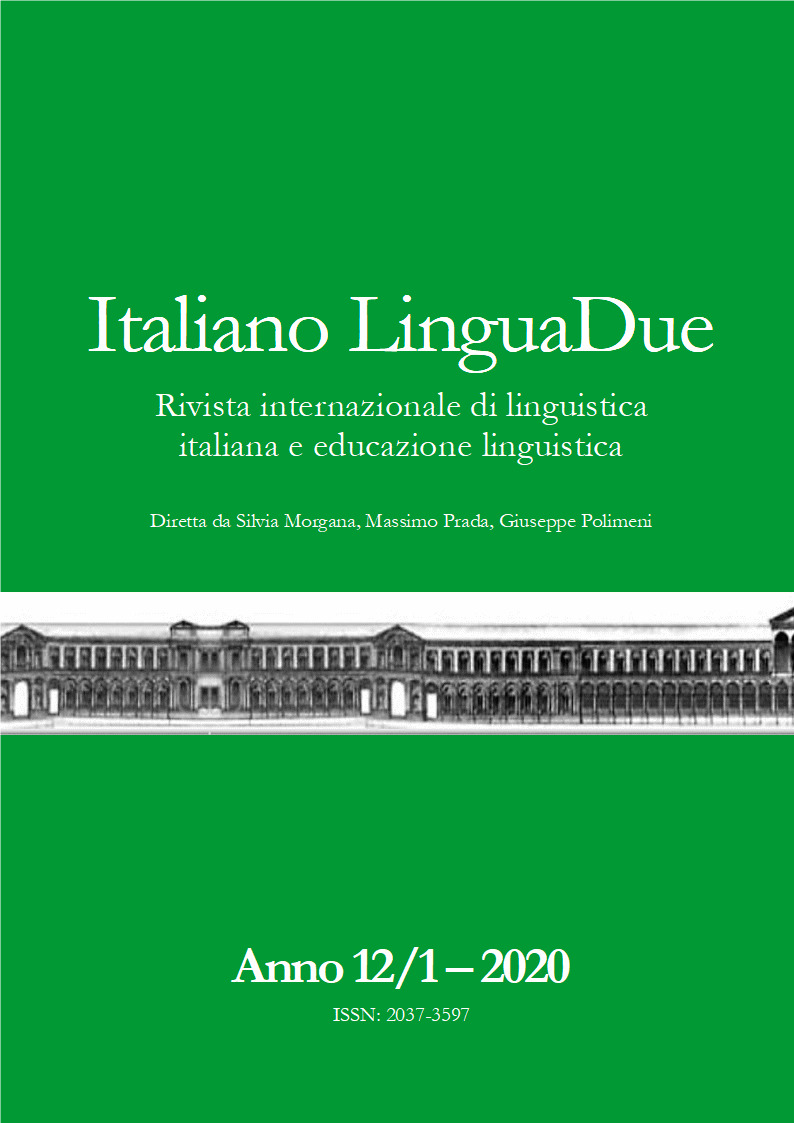IL LABORATORIO DI SCRITTURA PER IL RECUPERO DEGLI OFA. UN OSSERVATORIO SULLE DEBOLEZZE DEGLI STUDENTI E UN ESPERIMENTO DI DIDATTICA DELL’ITALIANO
DOI:
https://doi.org/10.13130/2037-3597/13984Abstract
Il laboratorio di scrittura per il recupero degli OFA tenuto negli anni 2017-2018 e 2018-2019 al Dipartimento di Civiltà antiche e moderne dell’Università di Messina ha consentito di raccogliere un corpus di centinaia di elaborati scritti appartenenti ai generi del riassunto e del commento. Questo materiale è in corso di organizzazione e di analisi, ma ha già permesso di rilevare alcune difficoltà ricorrenti, delle quali in questo contributo si presenta una esemplificazione commentata. Gli errori commentati sono divisi a seconda della macroabilità coinvolta maggiormente, la lettura/comprensione e la scrittura/espressione. Nel contributo, inoltre, si illustrano i principi didattici alla base del laboratorio di scrittura, elaborati nel quadro del confronto tra l’apprendimento della modalità scritta della lingua italiana da parte di parlanti nativi e quello dell’italiano come L2 da parte di stranieri. Con l’adozione di questo quadro teorico è stato possibile interpretare i difetti in ricezione e produzione come errori interlinguistici e impostare il processo correttivo sul modello dell’informazione metalinguistica, in accordo con gli studi acquisizionali più recenti.
The two sides of the writing lab for the recovery of OFA: observatory on the weaknesses of students, an experiment in teaching Italian
The writing lab for the recovery of OFA held in 2017-2018 and 2018-2019 at the Dipartimento di Civiltà antiche e moderne of the Università di Messina allowed us to collect a corpus of hundreds of written works belonging to the genres of the summary and comment. This material is in the process of being organized and analyzed, but it has already been possible to detect some recurrent difficulties, of which an example is presented and commented on in this paper. The errors were divided according to the macro-ability involved the most, reading / understanding and writing / expression. The teaching principles underlying the writing workshop are also illustrated in the paper, developed in the context of comparison between learning written Italian language by native speakers and that of Italian L2 by foreigners. With the adoption of this theoretical framework, it was possible to interpret the defects in reception and production as interlinguistic errors and set up the corrective process on the model of metalinguistic information, in line with the most recent studies on language acquisition.




